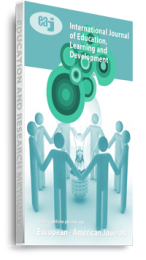Information and communication technology (ICT) has brought profound changes to almost all aspects of life, including educational practices. The role of ICT in the development of knowledge is widely recognized. This study investigated how teachers’ Compliance and Utilization of ICT impact on their curriculum delivery in Nigeria. Four research questions were raised and answered in this study. The study adopted survey design. The population of this study is 681 social studies teachers in 2015/2016 academic year, from where a total of 204 respondents were sampled. A 16-item instrument titled “ICT Compliance and Utilization Assessment Questionnaire” (ICUAQ) developed by the researcher and validated by experts in the Faculty of Education, University of Uyo was used for data collection with a reliability coefficient of 0.81, established through a correlation analysis. Data generated based on the research questions were analyzed with descriptive statistics using percentage. Findings revealed that social studies teachers show noncompliance attitudes towards ICT, measured in terms of acceptance of ICT training, and accessing ICT resources. The study revealed that teachers make less use of ICT in terms of frequency in the use of ICT in lesson preparations, teaching and learning. Based on the findings, the study concluded that objective of ICT in education in Nigeria has not been met, and that social studies teachers are yet to derive the benefits of ICT in curriculum delivery. Consequently, the study recommended that government and other stakeholders such as Parents Teachers Association (PTA) and Old Students should liaise with schools to determine the training needs of staff members and help them to organize appropriate training programmes.
Keywords: Curriculum, Education, ICT, Nigeria, Social Studies, Teacher, Training

